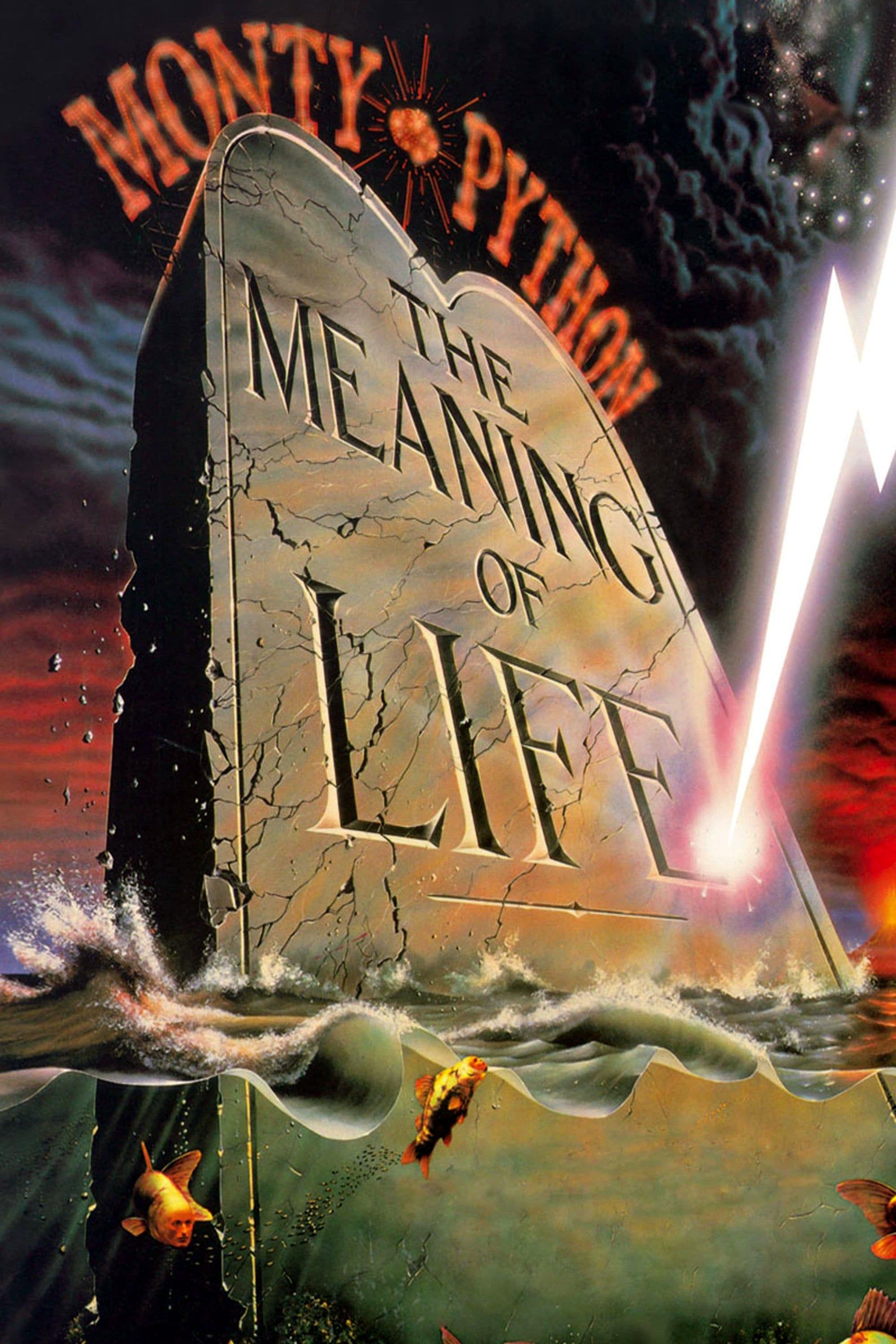
Monty Python's The Meaning of Life
1983
Rate this movie
Average: 0.00 / 5
(0 votes)
Director
"What is the meaning of life?" The ramshackle gang of Monty Python, a British comedy group formed by Graham Chapman, John Cleese, Terry Gilliam, Eric Idle, Terry Jones, and Michael Palin, pompously asks. A question that has tormented philosophers, theologians, and troubled souls for millennia, here transformed not into an academic exercise, but rather into a pretext for a sacrilegious foray into the absurd. Theirs is not a transcendental quest, but a playful and ruthless dismantling of the conventions that frame existence, a boisterous overturning of all solemnity. In this sense, the film stands as a post-modern monument to deconstruction, rejecting all grand narratives and offering in return the liberating laughter of nothingness.
To answer this age-old question, the six create a film that, starting from the birth of man and his absurd commodification – as we shall see – examines all the fundamental stages of a human life, from growth to old age, from war to religion, only to conclude that no, there is no meaning, it's better to laugh about it. This realization, far from nihilistic, translates into an invitation to daily epicureanism, to find joy in the irrational and the unexpected, just as the masters of the Theatre of the Absurd taught in the face of the meaninglessness of existence. The work is structured as a picaresque odyssey through the most recondite and ridiculous folds of human experience, a kaleidoscopic mosaic where every piece, however disconnected, contributes to painting a desolately hilarious picture of the human condition.
An opera buffa divided into episodes, which sees the English comedians impersonating legions of bizarre characters, in a barrage of jokes and comical situations that unleash the fiercest hilarity, lashing out at the customs and habits of a human being who takes himself too seriously. This is not superficial satire, but rather a targeted attack on the foundations of established institutions and hypocrisies: the British educational system, military bureaucracy, bourgeois narrow-mindedness, the pomposity of finance, the arrogance of religion, and the grotesque inhumanity of medicine. Each sketch is a sharp barb, a comedic scalpel that cuts into the wounds of conformism and self-deception.
The film presents grotesque situations, but one always laughs with an underlying bitterness, a veiled cynicism. It is the bitter laughter of those who have understood the futility of many human endeavors, the desolate repetitiveness of the deadly sins, and the vanity of ambitions. This bittersweet vein, typical of more sophisticated British humor, elevates the Pythons' comedy beyond a mere gag, giving it an almost philosophical resonance. The grotesque, in fact, is not an end in itself, but a tool to reveal the monstrosity lurking beneath the veneer of normality.
Comedy, musical, surreal parody, cabaret, vaudeville. Monty Python's The Meaning of Life is all this and much more: a film that casts an irreverent gaze upon the existential foundations of man and thoroughly roughs them up. Its protean nature reflects the group's television origins, exceptionally skilled at mixing languages and formats. Terry Gilliam's animated sequences, veritable Dadaist nightmares that serve as a glue between the sketches, are a hymn to creative freedom and visual deconstruction, transforming common objects into menacing or mocking creatures. The parody extends to genres themselves, from war films to Hollywood musicals, with a mastery that transcends mere imitation to embrace criticism and cultural commentary.
A caustic humor that takes no prisoners from the English gang of bons vivants, but also a masterful use of the camera that yields a stylistically impeccable work, capable of winning the Jury Prize at the Cannes Film Festival in 1983. A significant recognition for a film that, with its irreverence, dared to challenge cinematic conventions and the well-meaning establishment. Terry Jones's direction, aided by Gilliam's imaginative flair, does not merely frame the gag, but builds worlds, amplifies the absurd, and orchestrates chaos with millimeter precision. Every scene, even the wildest, is meticulously crafted, demonstrating an unexpected professionalism behind the facade of pure anarchy.
Some scenes remain truly memorable, etched into the collective imagination for their audacity and visceral humor.
The fat man (played by an irresistible Terry Jones) who enters the luxury restaurant and asks for a bucket to vomit, then orders all the dishes on the menu, only to explode with the last wafer, flooding the onlookers with vomit and liquefied organs. This sequence, celebrated and nauseating, is a hymn to gluttony and rampant consumerism, a metaphor for Western society gorging itself to self-destruction. It's not just shock value, but a raw and unforgettable depiction of excess and its inevitable, repugnant consequences, a biblical warning disguised as a culinary farce.
Or the miracle of birth, with the pregnant woman being taken to the delivery room where throngs of onlookers pass by, documenting the event with cameras and camcorders, while the husband is turned away for being a person not interested in the event. Here, the criticism is directed at the dehumanization of the medical experience, transformed into a voyeuristic and bureaucratic spectacle, where the father's emotional involvement is subordinated to an absurd practice. The innocence and sacredness of the moment are demolished by media frivolity and systemic rigidity, a bitter reflection on the loss of authenticity in the modern world. And how can one forget the sex education lesson in the classroom, with the professor coupling with his wife in front of the students, or the hilarious "Find the Fish" segment that parodies work alienation in a meaningless financial company, a prelude to the pirate epic of "Crimson Permanent Assurance". The film's thematic coherence, despite its narrative fragmentation, lies precisely in this tireless questioning of every taboo and dogma, elevating The Meaning of Life from a mere collection of sketches to an iconoclastic manifesto, a timeless work that continues to make us reflect, between laughs, on the grand and ridiculous comedy that is existence.
Country
Gallery
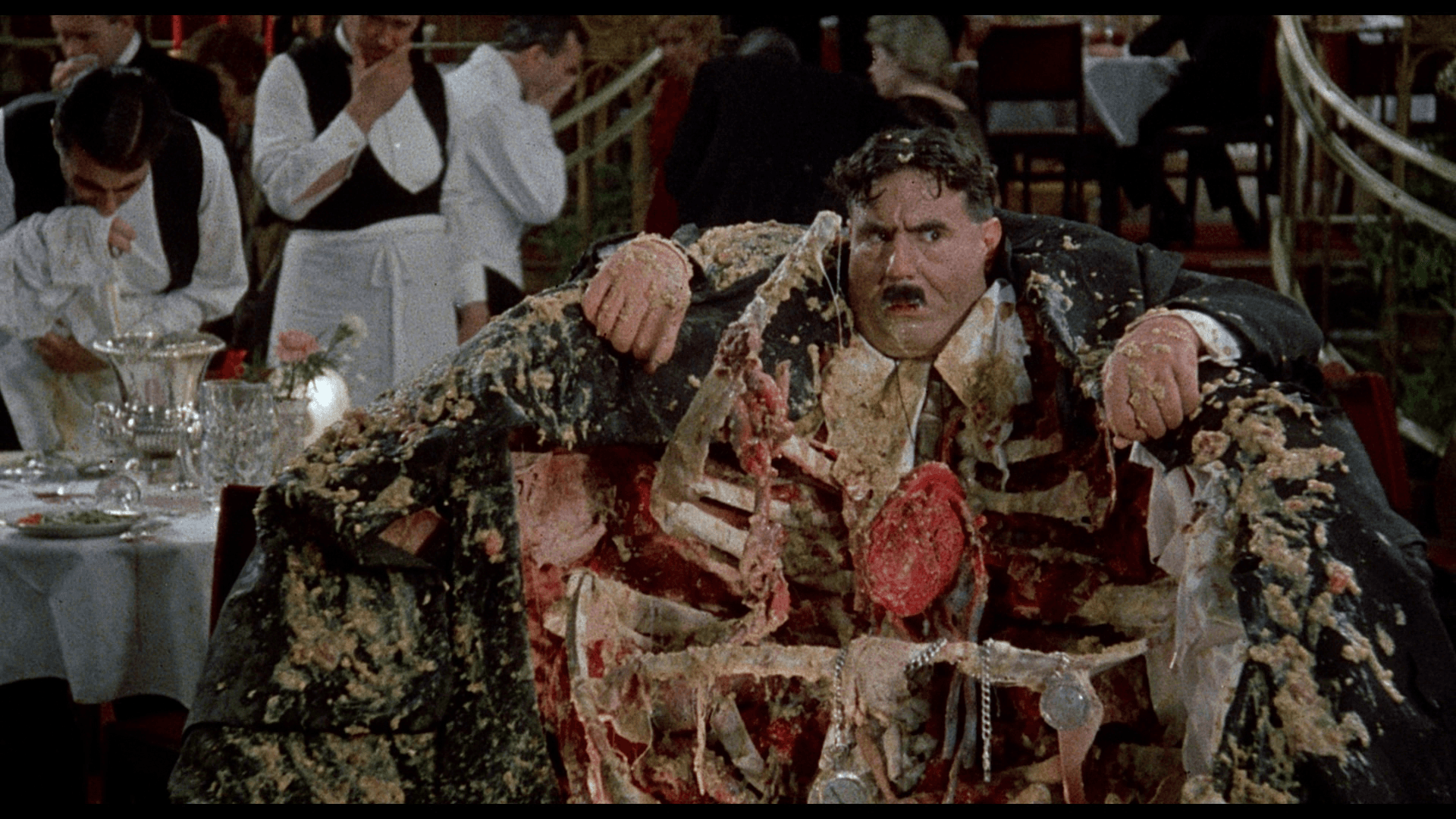
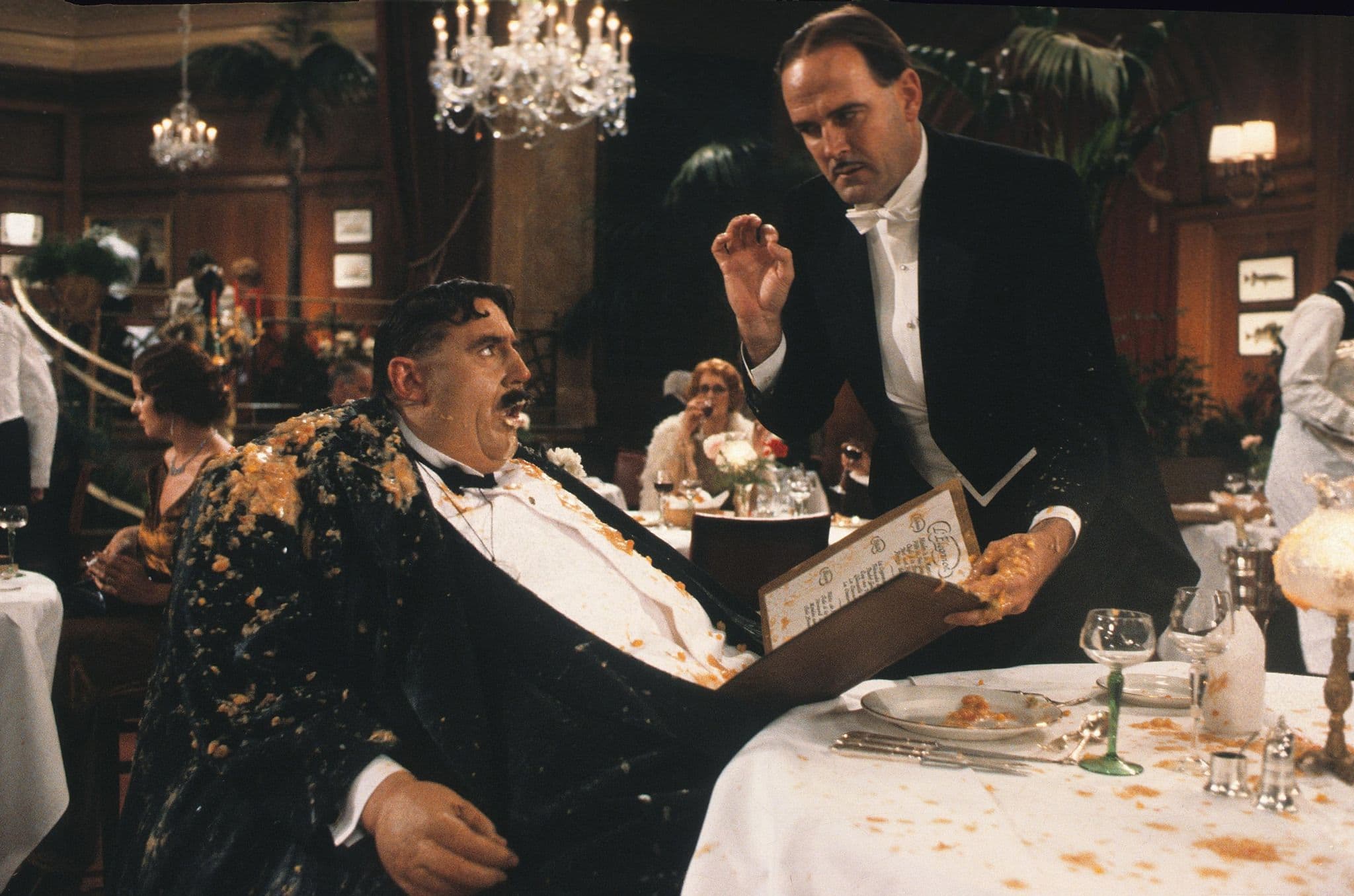
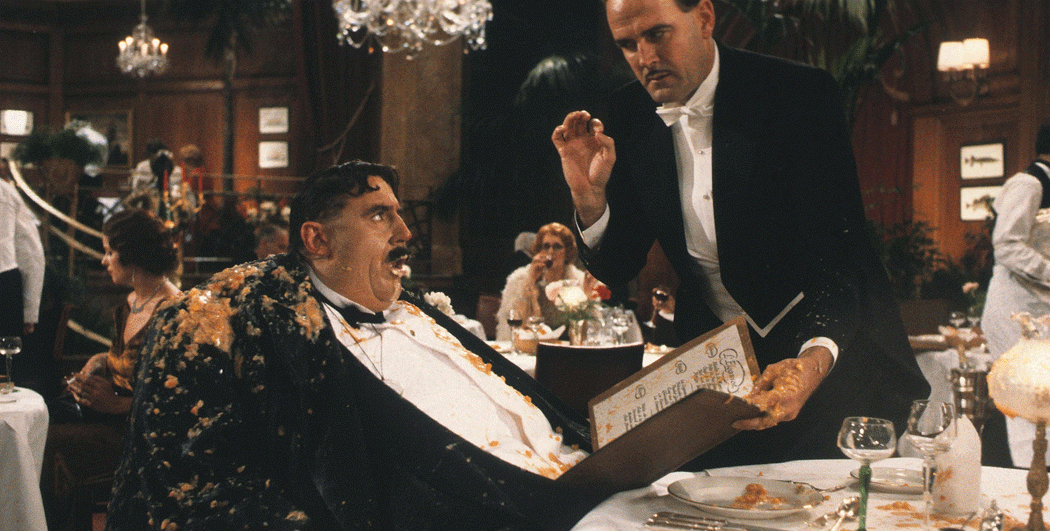
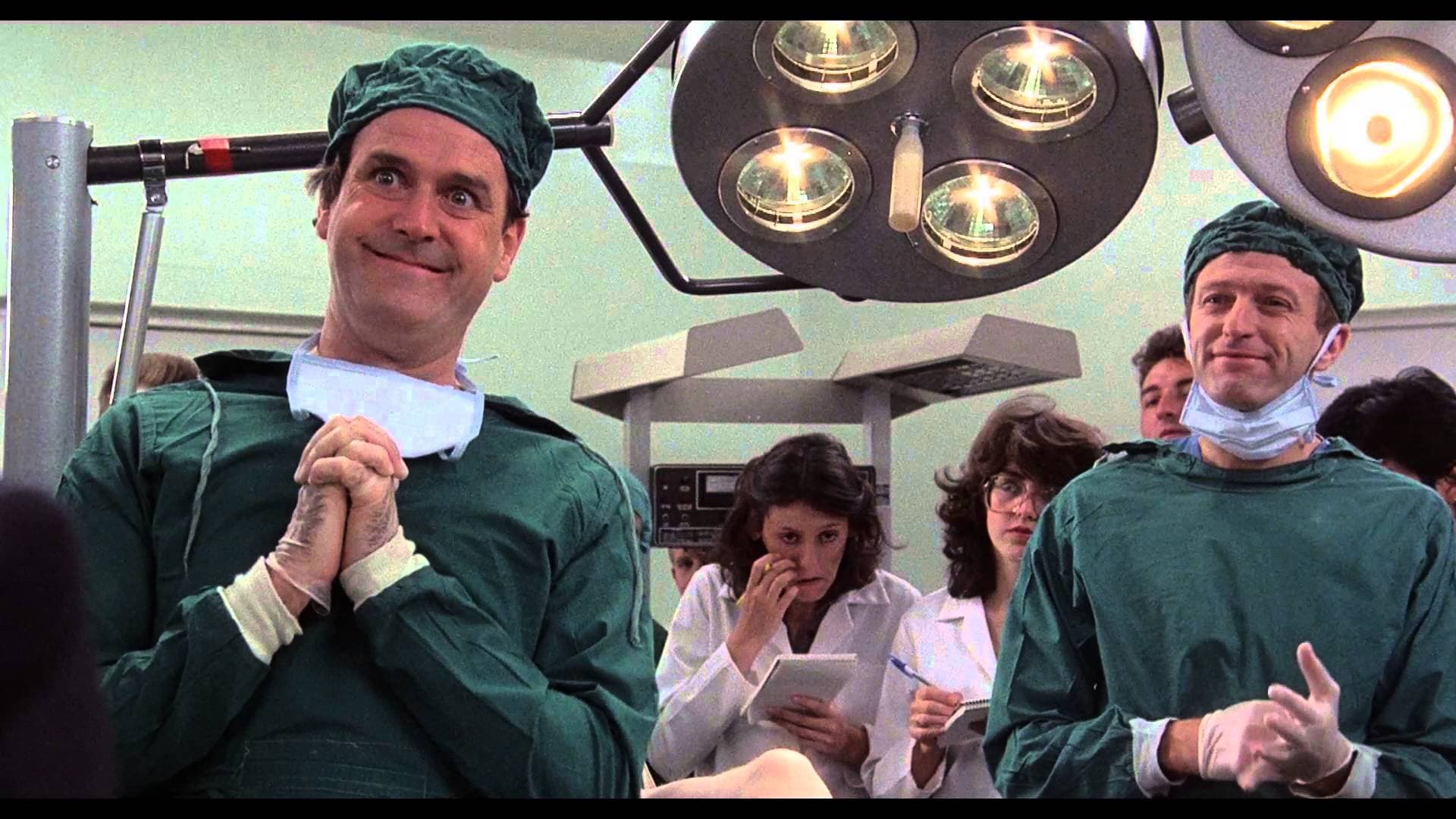
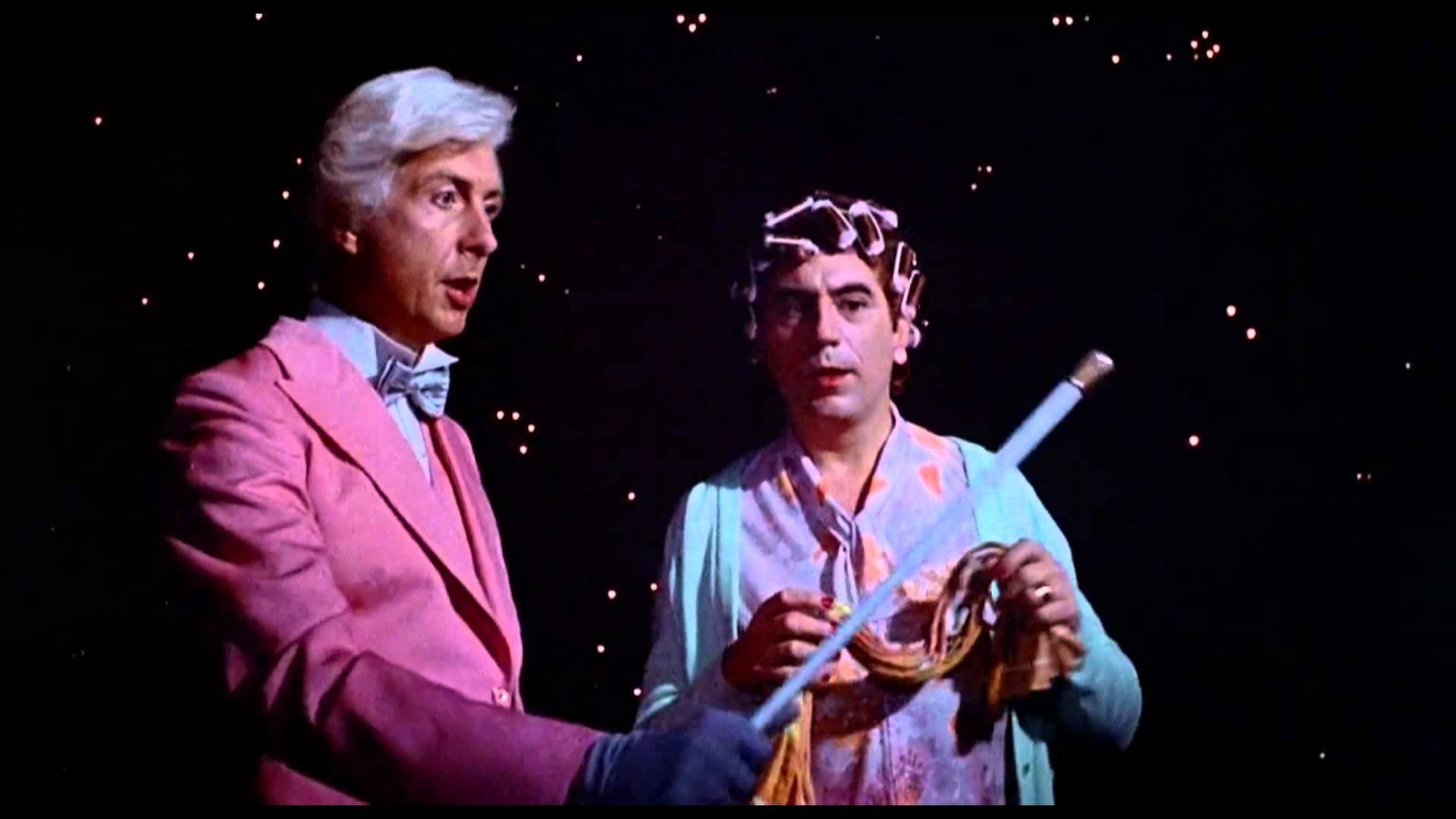
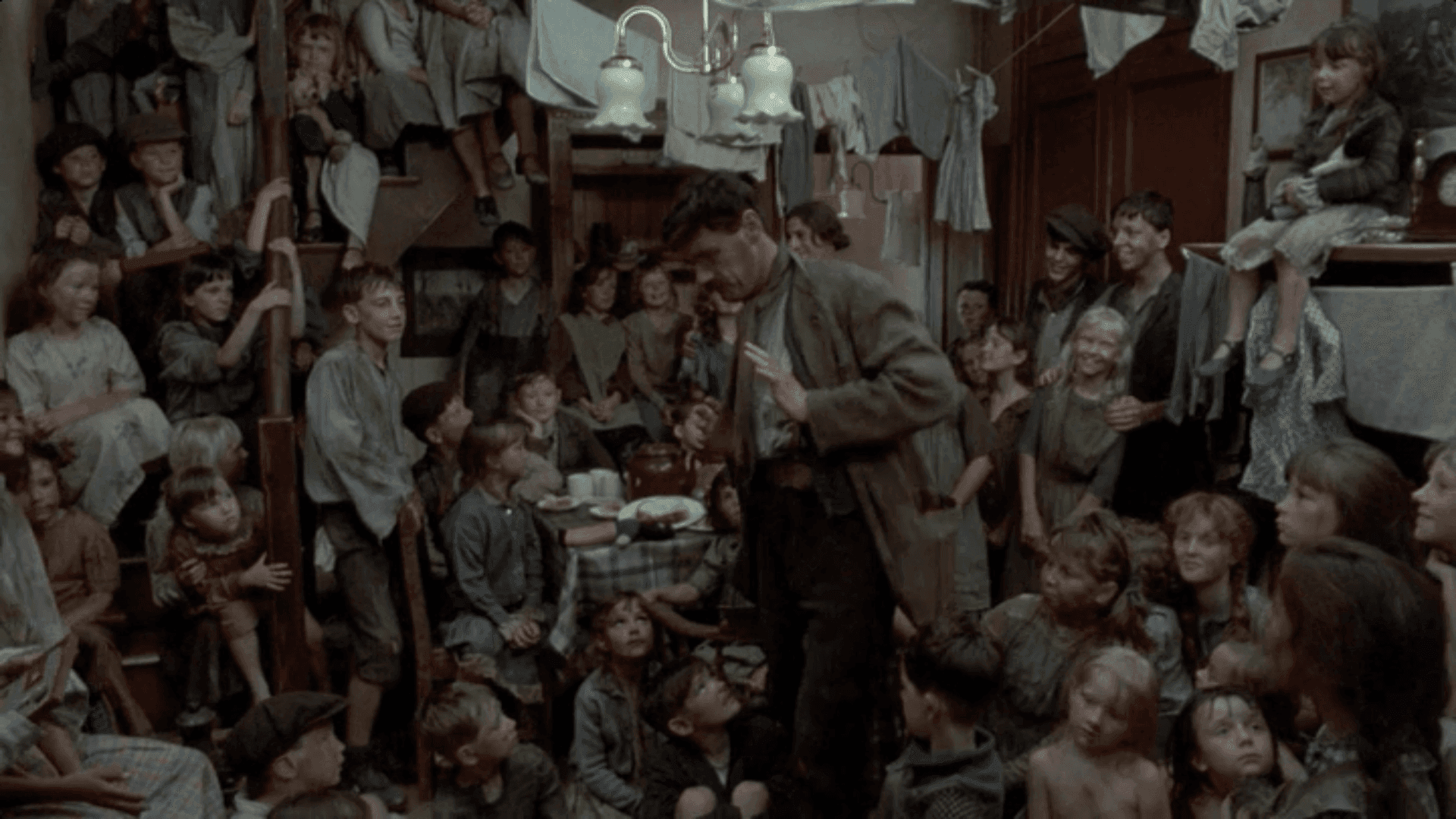
Comments
Loading comments...